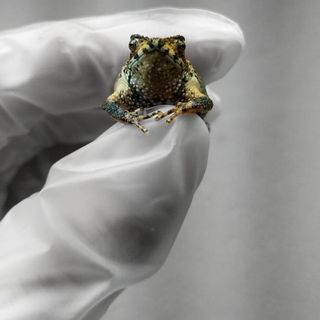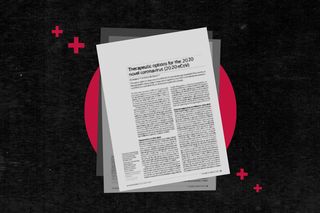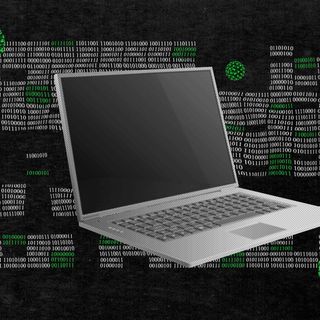
The Quality of Scientific Research Has Deteriorated Amid the Covid19 Pandemic. Ethicists Explain How to Fix It.
Authenticity of results is more important than speed, ethicists from Carnegie Mellon and McGill Universities advise.

Since the Covid19 pandemic began, medical and research institutions have fallen over each other trying to publish research explaining the complexities of the novel coronavirus, while testing new methods to combat the outbreak. In this frantic rush, the quality of the research has deteriorated, ethicists from Carnegie Mellon and McGill Universities write, which can likely exacerbate this public health and human rights crisis.
Published in the journal Science, the paper challenges the notion that the emergency created during life-threatening pandemics doesn’t allow for thorough, randomized, and controlled clinical trials that normally take time. This perception violates the purpose of medical research — “to reduce uncertainty and enable caregivers, health systems, and policy-makers to better address individual and public health” — the authenticity of which is even more crucial in these uncertain times, ethicists argue.
Take the example of former “miracle drug” hydroxychloroquine (HCQ), an anti-malarial drug from the 1940s that rose to fame due to support from a French study, prompting U.S. President Donald Trump to call it “one of the biggest game-changers in the history of medicine,” The Swaddle previously reported. The publisher of the study, the International Journal of Antimicrobial Agents, eventually retracted it, citing inconclusive evidence for the efficacy of the drug. The damage — HCQ has a fatal risk factor attached and can affect the heart, causing sudden arrhythmias — had already been done. Further, the Maharashtra government in India proposed a seven-week-long prophylactic HCQ course for residents of slums in Mumbai.
Related on The Swaddle:
Coronavirus Is Too Small For Air Purifiers to Capture and Kill, Say Experts
Examples of retracted studies are dominating science news all around the world. A Russian team published a coronavirus genome sequence consisting of an unusually large number of mutations, which momentarily complicated the process of developing vaccines and drugs in laboratories around the world that relied on existing data about the genetic material of the coronavirus. The study was later retracted due to technical errors. Another study from China, seeking to determine how long aerosol particles containing Covid19 stayed in the air, claimed that the droplets could travel up to 15 feet and recommended that governments re-evaluate social distancing guidelines advising a six-feet distance. Five days later, they retracted the study, without giving any reasons. The ambiguity has also seeped into Covid19 testing policies — the Trump administration repeatedly cited low accuracy figures for foreign coronavirus tests to explain its hesitancy in importing tests from abroad, which NPR found were based on a paper that was soon retracted.
Meanwhile, the U.S. Food and Drug Administration is on a frenzy of authorizing unproven drugs for “emergency use,” stating that the possible benefits outweigh the risks of not knowing their efficacy for certain, the Washington Post reported. This hampers willing participation and interest in other research attempting to explore alternative forms of treatment, experts told the Post.
Any information we unearth about Covid19 today — from the need for masks to how long it stays on surfaces — will influence public policy worldwide. Governments are waiting to pounce on any new drug or testing mechanism that gets them one step closer to combating the pandemic and saving more lives. In the latest Science paper, ethicists warn against publishing unproven, incomplete research to aid speed, because it risks duplication of effort. Following publication, suddenly, a piece of unproven research starts being touted by heads of state, built upon in laboratories all around the world, used in determining public policy — only to be retracted weeks later, leaving all of its resulting strings hanging unsupported.
To combat this, the ethicists list important considerations for the scientific community to aid social responsibility. First, clinical trials must focus on what’s important — they should prioritize areas of study that have gaps in evidence. If there are 18 ongoing HCQ trials, another one should not be started, they advise. Second, researchers should resist the urge to start small studies but instead aim to join larger, better-funded ones that can afford to conduct controlled trials. Third, regulatory bodies, such as the FDA and the World Health Organization, need to have rigorous standards in place to identify research. They must not tout unproven data just to signal incomplete progress.
Even with these considerations, there will always remain an element of uncertainty in medicine, the writers say, but they assert that this does not mean that medical and research institutions throw in the towel entirely. “Rather than generating permission to carry out low-quality investigations, the urgency and scarcity of pandemics heighten the responsibility of key actors in the research enterprise to coordinate their activities to uphold the standards necessary to advance this mission,” co-author of the paper and director of the Center for Ethics and Policy at Carnegie Mellon, Alex John London, said in a statement.
However, the onus of ensuring accuracy doesn’t only fall on the scientific community. While researchers race to find answers related to the Covid19 pandemic, news media is responsible for making their research accessible to the masses. The emergent nature of the Covid19 pandemic has also taken a toll on the rigorous journalism standards at news outlets, which are increasingly reporting on every little advancement, without doing their due diligence in checking for scientific thoroughness. Misleading headlines, claims of conclusive evidence where there is none, and a lack of follow-ups on previously reported research are all contributing to a dangerous spread of misinformation. The benefits of being able to bring some news to people don’t outweigh the risk of spreading misleading information, now more than ever.
Rajvi Desai is The Swaddle's Culture Editor. After graduating from NYU as a Journalism and Politics major, she covered breaking news and politics in New York City, and dabbled in design and entertainment journalism. Back in the homeland, she's interested in tackling beauty, sports, politics and human rights in her gender-focused writing, while also co-managing The Swaddle Team's podcast, Respectfully Disagree.
Related


Neo‑Nazis Leak Emails, Passwords of Employees From the WHO, Gates Foundation
